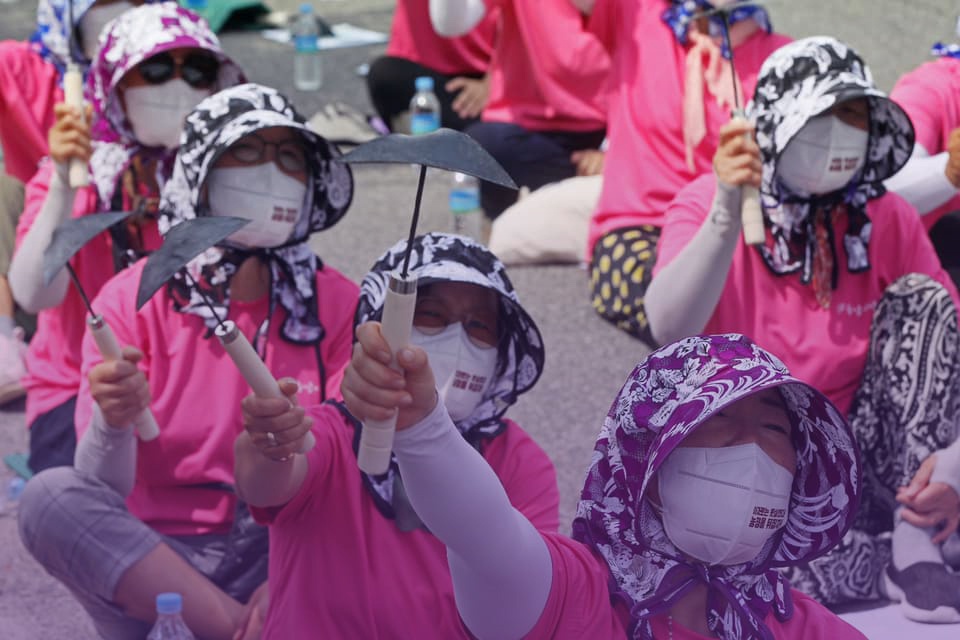September 10th is a day of struggle for La Via Campesina against free trade. This date pays tribute to the militant courage of an extreme political act, when the South Korean activist Lee Kyung Hae took his own life during a demonstration against the World Trade Organization (WTO) in Cancún, Mexico, in 2003. Lee was a peasant who was deeply affected by trade policies, like many other peasants in his country, South Korea. Food imports and the introduction of agriculture in free trade agreements directly impact the lives of peasants, destroying the conditions that support peasant production and livelihoods, while benefiting big transnational corporations in the industry. This is why, on September 10th this year, La Via Campesina denounces: free trade brings debt, poverty, hunger, and death! The organization is calling everyone to continue to struggle against free trade and to build solidarity trade now.
To learn about the analysis peasant women produce on the impacts of free trade and the current challenges posed by this struggle, Capire spoke with Geum-Soon Yoon, a member of the Korean Women Peasants Association (KWPA) and La Via Campesina. Yoon lives in Seongju, South Korea, where she grows melon, vegetables, and beans. Since the 1980s, she has dedicated her life to organizing peasant women and struggling for peace and unification in the Korean Peninsula.
Yoon shares details about the effects of free trade on peasant farming from the perspective of Korean reality, warning about the traps and dangers of a new generation of agreements, especially the investor-state dispute settlements (ISDS). This interview was conducted in Spanish and Korean, and it was only made possible thanks to the interpreting efforts of Jung Eun Lee.
Follow these links for this story in English, Portugese, Spanish or French

